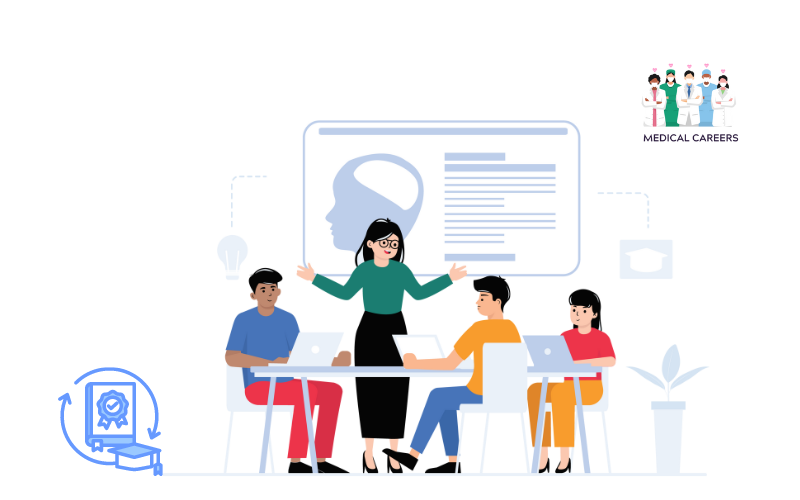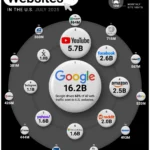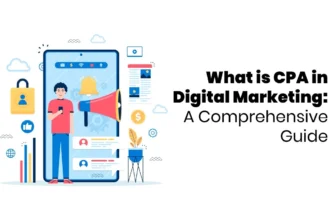The healthcare industry stands as a pillar of societal well-being, yet it’s also one of the most dynamic and rapidly evolving sectors. From groundbreaking medical research and technological innovations to shifting regulatory landscapes and patient care paradigms, staying stagnant is simply not an option for professionals dedicated to providing the best possible care. Continuous learning isn’t just a professional courtesy; it’s a fundamental necessity. It ensures practitioners remain competent, effective, and equipped to handle the complexities of modern medicine. In this ever-changing environment, finding reliable, accessible, and relevant online education learning resources is paramount. This is where dedicated platforms, designed specifically for the needs of healthcare providers, become invaluable assets.
The sheer volume of new information published daily – new studies, treatment protocols, drug approvals, and technological advancements – can be overwhelming. Professionals need efficient ways to filter, absorb, and apply this knowledge. Online learning platforms offer a flexible and powerful solution, allowing individuals to learn at their own pace, on their own schedule, without compromising their demanding work commitments. While numerous platforms exist, catering to diverse fields from language learning online to learning python, the specific needs of healthcare professionals require specialized content and delivery. This brings us to a vital resource: the Baycare Online Learning Center.
Unveiling the Baycare Online Learning Center: A Hub for Healthcare Excellence
What is the Baycare Online Learning Center?
The Baycare Online Learning Center represents a significant commitment to the ongoing professional development of healthcare professionals within the Baycare network and potentially beyond. It functions as a centralized digital hub, aggregating a wide array of educational resources, training modules, and learning opportunities. Unlike generic online learning platforms, the Baycare center is tailored to the unique demands and skill requirements of the healthcare sector. Its core mission revolves around empowering clinicians, administrators, technicians, and support staff with the knowledge and skills necessary to excel in their roles, improve patient outcomes, and navigate the complexities of the healthcare system.
This isn’t just a repository of documents; it’s an interactive ecosystem designed for learning and growth. Whether you’re an onboarding nurse seeking foundational knowledge, an experienced physician looking to specialize, or a hospital administrator needing to stay abreast of compliance regulations, the Baycare Online Learning Center aims to be your go-to resource. It embodies the principle that high-quality online education learning is critical for maintaining standards of care and fostering innovation.
The Driving Need: Why Specialized Healthcare Learning Matters
The healthcare landscape is characterized by:
- Rapid Scientific Advancement: New diagnostic tools, treatments, and pharmaceuticals emerge constantly. Professionals must continually update their knowledge base. Think about the advancements in oncology, cardiology, or infectious disease management – staying current requires dedicated effort. Resources like Coursera or edX offer broad scientific courses, but a specialized platform ensures relevance.
- Technological Integration: Electronic Health Records (EHRs), telehealth platforms, AI-driven diagnostic tools, and robotic surgery are becoming commonplace. Proficiency in these technologies is increasingly essential. Understanding the fundamentals, perhaps even exploring introductory concepts related to machine learning in diagnostics or data analysis using tools potentially related to python learning online, is becoming advantageous.
- Evolving Regulatory and Compliance Standards: Healthcare is heavily regulated (e.g., HIPAA in the US, TGA regulations in Australia). Professionals need up-to-date training on privacy, safety, billing, and ethical standards. This often involves mandatory online learning courses that must be completed annually.
- Focus on Patient-Centered Care: Modern healthcare emphasizes empathy, communication, and holistic patient well-being. Training often includes modules on patient engagement, cultural competency, and effective communication strategies, potentially even touching on basic language learning online principles for diverse patient populations.
- Interprofessional Collaboration: Healthcare is a team sport. Effective collaboration requires understanding the roles and expertise of various professionals. Training modules often facilitate this understanding, improving teamwork and patient safety.
The Baycare Online Learning Center directly addresses these needs by providing targeted, relevant, and accessible educational content. It moves beyond the general offerings found on platforms like Alison online learning or Udemy by focusing intently on the specific competencies required within the healthcare domain.
Key Features and Benefits of the Baycare Online Learning Center
The effectiveness of any online learning platform lies in its features and the benefits they offer users. The Baycare Online Learning Center is designed with the busy healthcare professional in mind.
Feature Spotlight:
- Comprehensive Course Catalog: Offering a diverse range of subjects covering clinical practice, healthcare management, compliance, patient safety, and potentially emerging technologies. This allows for a holistic approach to professional development, moving beyond a single specialty.
- Interactive Learning Modules: Engaging content formats including videos, simulations, interactive case studies, quizzes, and assessments designed to reinforce learning and improve retention. This contrasts with passive reading and mirrors the active nature of clinical practice.
- Expert-Led Instruction: Courses are often developed and delivered by subject matter experts, experienced clinicians, and respected leaders within the healthcare field, ensuring content is credible and practical.
- Personalized Learning Paths: The ability for users to identify their learning goals and follow curated paths, suggesting relevant online courses based on their role, specialty, or career aspirations. This could be part of my online learning experience within the platform’s dashboard.
- Progress Tracking and Analytics: Robust tools for users and potentially their managers to monitor learning progress, completion rates, and assessment scores. This is crucial for compliance tracking and identifying areas for further development.
- Accessibility and Flexibility: Available 24/7 across various devices (desktops, tablets, smartphones), enabling learning anytime, anywhere. This addresses the core advantage of online distance learning.
- Resource Library: Access to supplementary materials such as articles, guidelines, best practice documents, and links to external reputable sources (e.g., from bodies like the World Health Organization or specific medical associations).
- Community and Collaboration Features: Forums or discussion boards where learners can interact, ask questions, share insights, and learn from peers, fostering a sense of community around learning online.
Translating Features into Benefits:
- Enhanced Clinical Skills: Access to the latest techniques, evidence-based practices, and procedural training leads to improved diagnostic accuracy and treatment effectiveness.
- Improved Patient Safety: Comprehensive training on safety protocols, risk management, and error prevention directly contributes to better patient outcomes and reduced adverse events. Think of mandatory modules like learning test online for specific safety certifications.
- Career Advancement: Acquiring new skills and certifications through online learning courses can open doors to promotions, specialization, and new career opportunities. It demonstrates a commitment to professional growth.
- Compliance Assurance: Easily accessible and trackable mandatory training ensures regulatory requirements are met, avoiding potential penalties and maintaining operational integrity.
- Increased Efficiency and Productivity: Training on new technologies (like EHR systems) or optimized workflows can lead to greater efficiency in daily tasks.
- Cost-Effectiveness: Compared to traditional in-person training seminars or conferences, online education learning often provides a more affordable way to access high-quality professional development. This is a key aspect of the benefits of online learning.
- Adaptability: Equips professionals to adapt to the rapid changes in healthcare delivery, technology, and policy.
Navigating the Curriculum: What Can You Learn?
The strength of the Baycare Online Learning Center lies in the breadth and depth of its educational offerings. While the specific catalog may evolve, typical areas covered include:
Core Clinical Competencies:
- Nursing Skills: Advanced assessment, specific procedure training (e.g., IV insertion, wound care), critical care techniques, pediatric nursing protocols.
- Medical Specialties: Modules focused on specific areas like cardiology, oncology, neurology, endocrinology, etc., covering latest diagnostic and treatment advancements.
- Allied Health: Training relevant to therapists (physical, occupational, speech), pharmacists, laboratory technicians, radiology technicians, etc.
- Emergency Response: Basic Life Support (BLS), Advanced Cardiac Life Support (ACLS), Pediatric Advanced Life Support (PALS) – often essential refreshers.
Healthcare Management and Administration:
- Leadership Skills: Communication, team building, conflict resolution, change management for supervisors and managers.
- Healthcare Finance: Understanding billing cycles, coding (ICD-10, CPT), revenue cycle management. Perhaps tangential connections to CPA online learning principles applied within a healthcare context.
- Operations Management: Workflow optimization, resource allocation, quality improvement initiatives.
- Healthcare Informatics: Training on EHR/EMR systems, data management, understanding health data analytics. This is where emerging fields like what is machine learning start to intersect with healthcare data.
Compliance, Safety, and Ethics:
- Patient Safety: Modules on identifying and preventing medical errors, infection control, patient identification protocols, fall prevention.
- Regulatory Compliance: HIPAA training, OSHA standards, state-specific regulations, accreditation standards (e.g., Joint Commission).
- Ethics in Healthcare: Informed consent, patient rights, end-of-life care discussions, ethical dilemmas in practice.
- Diversity, Equity, and Inclusion (DEI): Training on cultural competency, implicit bias, and providing equitable care to diverse patient populations. This might involve understanding communication needs, though dedicated learning spanish online or other languages might be offered elsewhere or via different resources.
Professional Development and Soft Skills:
- Communication Skills: Effective patient communication, interprofessional collaboration, documentation best practices.
- Stress Management and Resilience: Tools for coping with the high-stress demands of healthcare professions.
- Technology Adoption: Training on new software, equipment, or digital health tools introduced within Baycare.
Exploring Emerging Trends:
- Telehealth Best Practices: Training on delivering remote patient care effectively and securely.
- Introduction to Health Data Analytics: Understanding how data is used for population health management and quality improvement. Some professionals might even explore introductory online machine learning concepts relevant to predictive analytics.
- AI in Healthcare: Awareness modules on how Artificial Intelligence is impacting diagnostics, drug discovery, and patient management. Exploring resources for AI courses online free could supplement this.
While the core focus is healthcare, the platform might offer foundational courses in related areas. For instance, understanding data might lead some to explore learning python online, a versatile skill for data analysis, even if Baycare doesn’t offer direct Python courses. It’s about building a holistic skill set.
The User Experience: Navigating Your My Online Learning Journey
A powerful platform is only effective if it’s user-friendly. The Baycare Online Learning Center likely emphasizes a smooth and intuitive user experience.
Ease of Access and Navigation:
Upon logging in, professionals typically encounter a personalized dashboard – the core of their my online learning space. This hub should provide:
- Clear Navigation Menu: Easy access to course catalogs, assigned training, progress reports, and profile settings.
- Search Functionality: An efficient search bar to quickly find specific courses or topics of interest. Searching for “infection control” or “HIPAA compliance” should yield immediate results.
- Course Recommendations: Suggestions based on the user’s role, past activity, or identified learning goals.
Engaging with Content:
- Modular Structure: Courses are broken down into digestible modules, allowing users to complete learning in short bursts fitting into busy schedules.
- Multimedia Integration: Utilizing videos, interactive elements, and graphics makes the learning process more engaging than static text.
- Mobile Responsiveness: Accessing courses via smartphone or tablet ensures learning can happen during commutes, breaks, or downtime. This is a key tenet of modern online learning platforms.
Tracking and Certification:
- Progress Monitoring: Visual indicators (e.g., progress bars, checklists) show users how far they’ve come in a course or learning path.
- Assessment Tools: Quizzes and final exams evaluate understanding. Passing scores often unlock downloadable certificates of completion.
- Transcript Management: A record of all completed courses and earned certifications, essential for professional portfolios and compliance audits.
Support and Community:
- Technical Support: Access to helpdesk resources for troubleshooting technical issues.
- Content Support: Mechanisms to ask questions about course material, perhaps via forums or direct contact with instructors/subject matter experts. This fosters a collaborative environment, similar to what might be found on broader platforms like LinkedIn Learning, but tailored to healthcare.
Baycare Online Learning Center vs. Other Online Learning Avenues

It’s useful to contextualize the Baycare Online Learning Center within the broader spectrum of online learning.
- General Platforms (Coursera, edX, Udemy, LinkedIn Learning): These platforms offer a vast range of courses across countless disciplines. While valuable for general knowledge or skills in fields like business, technology (learning python online, ai courses online free), or personal development, they often lack the specialized, context-specific content healthcare professionals require. Baycare provides that focused depth.
- Academic Online Programs (Flinders Learning Online, Solent Online Learning, RWTH Online, TUM Online): Many universities offer full degrees or certificate programs online. These are typically more intensive, longer-term commitments, often requiring formal admission. The Baycare Center focuses more on continuous professional development and specific skill-building, often in shorter modules.
- Specialized Resources (Red Cross Learning Center, CPA Australia online resources): Organizations like the Red Cross or CPA Australia offer training specific to their domains. Baycare functions similarly but serves as a comprehensive hub for the entire healthcare organization or network it supports. For instance, while CPA Australia focuses on accounting, Baycare might offer courses on healthcare finance management relevant to those roles.
- K-12 Focused Platforms (Scholastic Learning Zone, IXL Learning, Kahoot): Platforms like IXL or game-based learning sites (Kahoot, online learning games for 5 year olds) are designed for younger learners or K-12 education. While concepts like gamification are interesting, the pedagogical approach and content are fundamentally different from professional development needs.
- Free Resources (Alison, some Coursera courses): The availability of free online courses is a significant trend. While Baycare might offer some introductory or specific free modules, its core value proposition often lies in the curated, high-quality, and specialized content that may require institutional access or a subscription, ensuring a certain standard.
The Baycare Online Learning Center fills a crucial niche, offering targeted, high-quality online education learning specifically designed for the complexities and demands of the healthcare profession. It acts as an integrated online learning hub within the Baycare ecosystem.
Integrating Advanced Concepts: Machine Learning, Python, and the Future
The future of healthcare is increasingly intertwined with data science and artificial intelligence. While not its primary focus, a forward-thinking platform like the Baycare Online Learning Center may touch upon these areas:
- Data-Driven Decision Making: Professionals increasingly need to understand how to interpret data presented through reports and dashboards. This might involve basic statistical literacy or understanding key performance indicators.
- Introduction to AI in Healthcare: Awareness modules could explain concepts like AI in medical imaging analysis, predictive diagnostics, or personalized treatment recommendations. This provides context for the technologies professionals might encounter.
- Potential for Data Skills: While Baycare might not offer in-depth python learning online or full deep learning courses, it could host introductory modules or resource lists pointing towards external platforms (like Codecademy or others offering free online learning platforms for coding) for those interested in developing skills in data analysis relevant to healthcare research or administration. Understanding what is machine learning is becoming a foundational literacy for many fields.
By acknowledging and potentially introducing these advanced topics, the Baycare Center ensures professionals are not just competent in current practices but also prepared for the future of medicine. This proactive approach is key to staying ahead in a field constantly reshaped by technology.
Getting Started with the Baycare Online Learning Center
Embarking on your professional development journey with the Baycare Online Learning Center is typically straightforward.
- Access: Gain access through your Baycare network credentials or follow the specific registration process outlined by your institution. This might be linked from your employee portal or intranet.
- Explore the Catalog: Browse the available online learning courses using the search function or by category. Look for courses relevant to your current role, upcoming performance reviews, or desired career path.
- Enroll: Select the courses that interest you and enroll. Some courses may be self-paced, while others might have cohort start dates or assigned deadlines, especially for compliance training.
- Learn: Engage with the course material – watch videos, read modules, participate in discussions, and complete assessments. Remember the benefits of online learning: flexibility to fit this into your schedule.
- Track Progress: Utilize your my online learning dashboard to monitor your advancement and see upcoming learning requirements.
- Achieve: Upon successful completion, download your certificates as proof of your commitment to continuous learning and professional growth.
The Role of Online Learning in Supporting Health Systems
Platforms like the Baycare Online Learning Center are more than just training tools; they are strategic assets for healthcare organizations.
- Standardizing Training: Ensures a consistent level of knowledge and adherence to protocols across the entire organization.
- Improving Onboarding: Accelerates the integration of new hires by providing structured access to essential information and training.
- Facilitating Continuous Improvement: Supports quality improvement initiatives by disseminating best practices and data-driven insights.
- Enhancing Staff Retention: Investing in professional development shows employees they are valued, potentially boosting morale and retention rates. Offering robust online learning programs is part of a modern employee value proposition.
- Adapting to Change: Provides a agile mechanism for rolling out training related to new policies, technologies, or public health challenges (like pandemic response).
Consider the learning online qld health initiatives or similar systems in other regions – they highlight the importance of centralized, accessible learning for health workforces. Baycare’s platform serves a similar, vital function within its operational sphere.
Addressing Potential Challenges
While the advantages are numerous, effective online learning requires acknowledging potential hurdles:
- Self-Discipline: Learners need motivation and time management skills to stay on track without direct supervision.
- Digital Literacy: Basic comfort with technology is necessary to navigate the platform and access content.
- Isolation: The lack of face-to-face interaction can be a drawback for some learners. Features like discussion forums aim to mitigate this.
- Information Overload: The sheer volume of available online courses can sometimes feel overwhelming. Clear guidance and personalized paths are essential.
The Baycare Online Learning Center likely incorporates elements like clear structure, progress tracking, and community features to help users overcome these challenges, maximizing the benefits of online learning while minimizing the drawbacks.
Conclusion: Investing in Your Future with Baycare
In the demanding and ever-evolving world of healthcare, continuous learning is not a luxury but a cornerstone of professional excellence and patient safety. The Baycare Online Learning Center stands out as a dedicated, robust resource designed specifically to meet the educational needs of healthcare professionals. By offering a comprehensive range of expertly curated courses, flexible learning formats, and progress-tracking tools, it empowers individuals to enhance their skills, stay compliant, advance their careers, and ultimately, contribute to superior patient outcomes.
Whether you’re seeking to master a new clinical technique, understand complex regulations, or simply stay abreast of the latest advancements, the Baycare platform provides the structure and content necessary for growth. It represents a commitment to investing in its most valuable asset – its people.
Explore the Baycare Online Learning Center today. Dive into the vast online learning courses, chart your personalized my online learning path, and take control of your professional development. Embrace the future of healthcare by committing to lifelong learning, powered by Baycare.












